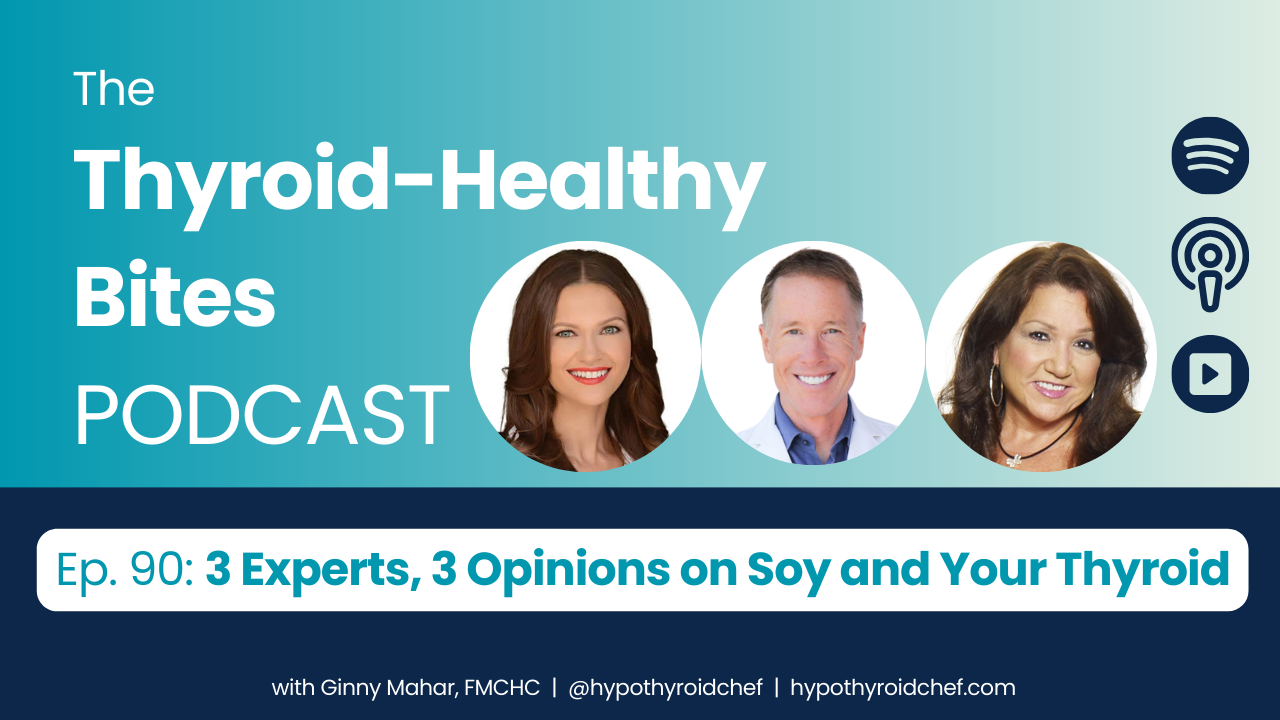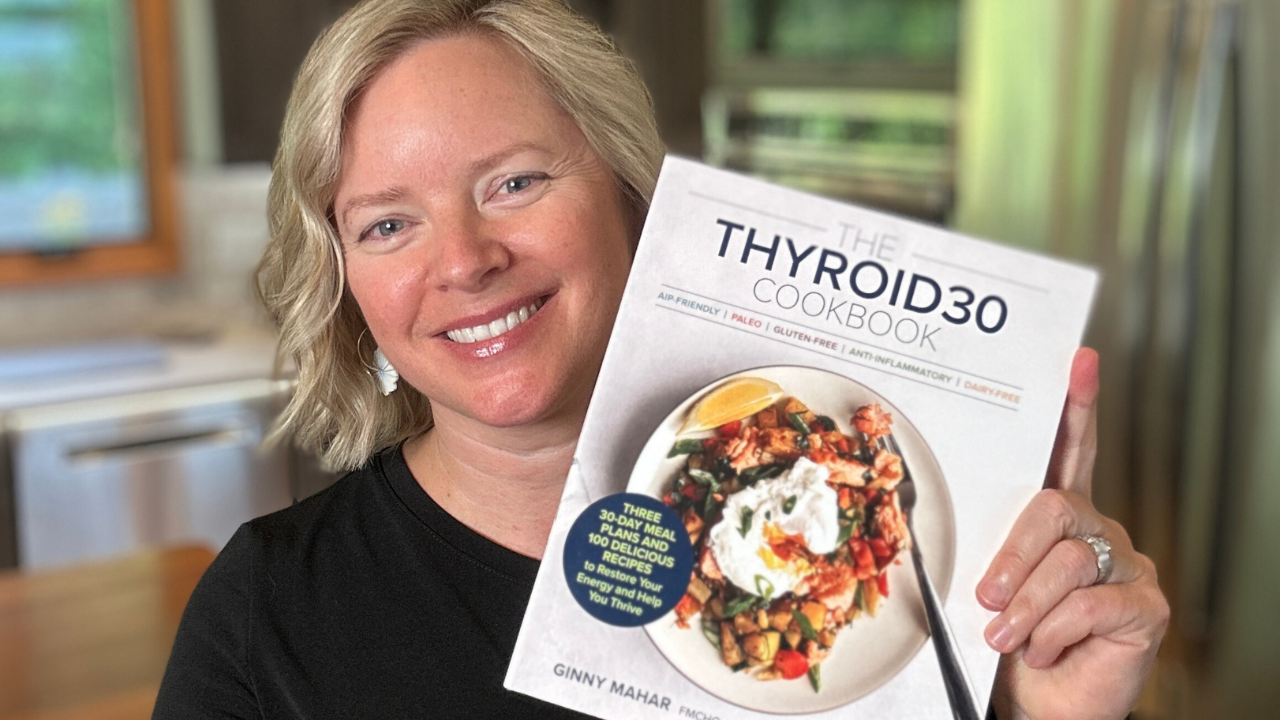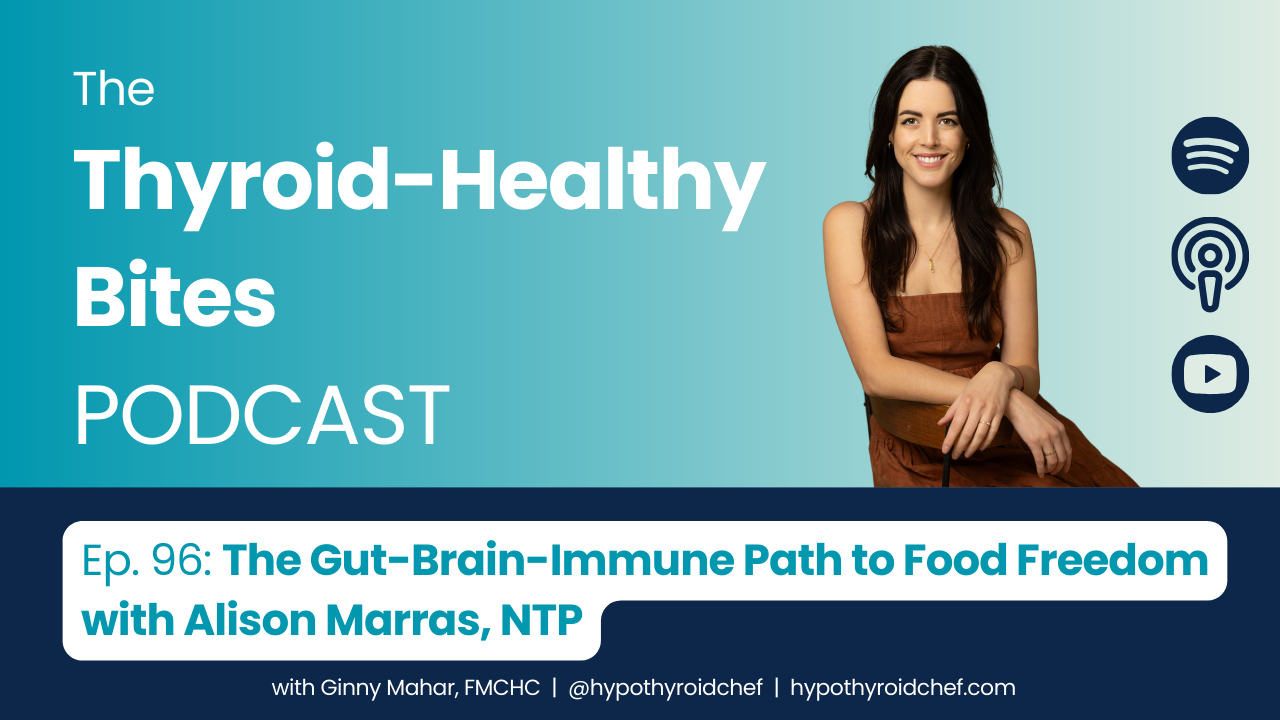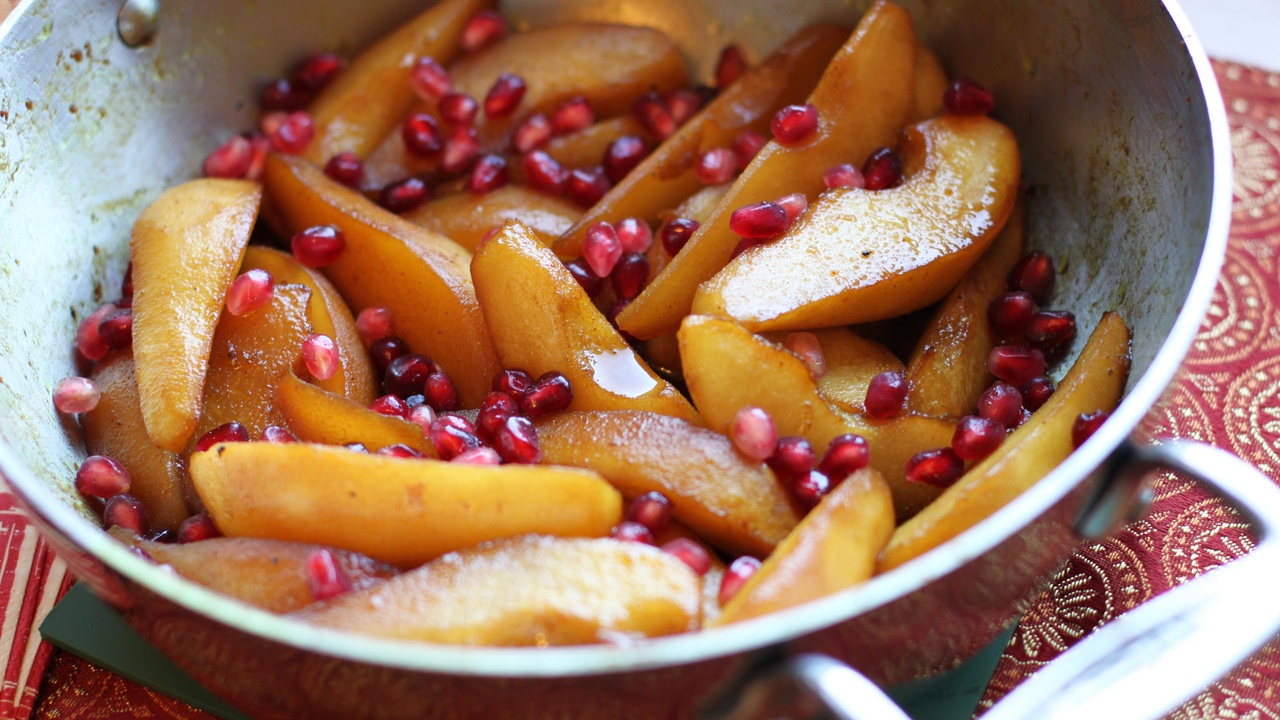Is Soy a Thyroid-Healthy Food? 3 Experts Weigh In

If there’s one food that sparks heated debate in the thyroid community, it’s soy. For years, the message was consistently the same: “Avoid soy if you have thyroid issues.” It's one reason why all of my recipes on Hypothyroid Chef are soy-free. More recently, though, I’ve been called to revisit this topic, as some experts have said, “It may not be that simple.”
Depending on who you follow, soy is either something to avoid at all costs, or it’s a superfood. The truth, I’ve found, usually lies somewhere in between. Hot-button foods like soy tend to generate a lot of online clicks, but those all-or-nothing claims rarely hold up to closer scrutiny.
My mantra with these "yellow light" thyroid foods is simple: be aware, not afraid. To get there, we need to get informed. That’s why I asked three trusted thyroid health experts—Dr. Izabella Wentz, Dr. Alan Christianson, and Mary Shomon—for their individual takes on soy. We explored the nuances, looked at what the research really says, and ultimately, their perspectives can help you decide how soy may (or may not) fit into your own thyroid-healthy plate.
In this Featured Ingredient deep dive + podcast mashup, we’re taking a fresh look at soy.
Scroll down to find:
-
Episode 90 of the Thyroid-Healthy Bites Podcast — where three thyroid experts share their unique perspectives on soy.
-
Quick facts about soy — what it is, why it’s confusing, and what matters for thyroid health.
-
Practical guidance & easy swaps — so you can enjoy soy (if you choose) in ways that align with your thyroid-friendly lifestyle.
-
My personal take as a chef and thyroid health coach — how I incorporate soy, and the guidelines I use in my kitchen.
Whether you’re soy-curious, soy-cautious, or undecided, this guide will help you cut through the noise, get informed, and make confident choices around soy.
Disclaimer: This information is for educational and inspirational purposes only. Always consult with your doctor or other qualified healthcare providers before making changes to your diet, health care, or exercise regimen. Affiliate disclosure: Some of the links in this post may be affiliate links. As an Amazon Associate, I earn from qualifying purchases. Purchasing a product using one of these links will support my work at no additional cost to you. Please know that any product recommendations I share here are my own.
Podcast Links:
- Listen on the Podcast Page
- Listen / Subscribe on Apple Podcasts
- Listen / Follow on Spotify
- Watch / Subscribe on YouTube
Why Soy Is So Confusing for Thyroid Thrivers
Soy wears a lot of hats:
-
It’s a phytoestrogen (a plant compound that can mimic estrogen).
-
It’s a goitrogen (in certain contexts, it can interfere with thyroid function).
-
It’s one of the top food allergens and sensitivity triggers.
-
It can interact with thyroid medication (depending on timing).
Mix in evidence of benefits (heart, bone, and breast health) and plenty of conflicting opinions, and it’s no wonder the waters get murky—especially for thyroid patients who already juggle extra variables.
What Do The Experts Say About Soy + Thyroid?
To help unpack the debate, I asked three of the thyroid community’s most trusted voices to share their take. Dr. Izabella Wentz, Dr. Alan Christianson, and Mary Shomon each bring a unique perspective shaped by research, clinical experience, and lived experience—both helping Thyroid Thrivers and being Thyroid Thrivers themselves.
In our mashup conversation, we explored questions like:
-
Do we really need to avoid soy 100% of the time?
-
If we choose to eat soy, which forms are best?
-
Are there ways to enjoy soy’s benefits while minimizing drawbacks?
-
And what does the research on soy actually say?
Below are highlights from each expert. For the full context, watch/listen to Episode 90 above.
Dr. Izabella Wentz — The Thyroid Pharmacist
Dr. Izabella Wentz, PharmD is a clinical pharmacist and one of the most well-known and trusted voices in the thyroid world. She's the NYT bestselling author of books like Hashimoto's Protocol, Hashimoto's Food Pharmacology, and Hashimoto’s Thyroiditis: Lifestyle Interventions for Finding and Treating the Root Cause.
In our conversation on episode 73 of Thyroid-Healthy Bites, Dr. Wentz observed that many Hashimoto’s patients experience improvements by avoiding soy, especially at first. She cites soy’s potential to inhibit thyroid function and contribute to higher antibodies or sensitivity reactions in some patients.
That said, she doesn’t see it as always a permanent “no.” Some patients may tolerate moderate, fermented, non-GMO soy later in their healing journey.
👉 Learn more about soy + thyroid from Dr. Wentz
Dr. Alan Christianson — Naturopathic Endocrinologist
Dr. Alan Christianson, NMD is a naturopathic endocrinologist and NYT bestselling author of books like The Thyroid Reset Diet, The Adrenal Reset Diet, and The Hormone Healing Cookbook. He’s also the founder of Integrative Health, a clinic dedicated to natural endocrine care.
In our conversation on episode 51 of Thyroid-Healthy Bites, Dr. Christianson shared that early in his career, he repeated the common advice to avoid soy...until he dug into the research. After reviewing 50+ studies, he found no convincing evidence that soy worsens thyroid disease, autoimmunity, or hormone levels in adults. Instead, he highlighted strong evidence for benefits such as lower risks of heart disease, osteoporosis, and breast cancer. He believes soy, especially during menopause, can provide real health advantages and doesn’t need to be categorically excluded from a thyroid-friendly diet.
👉 Learn more about soy + thyroid from Dr. Christianson
Mary Shomon — Thyroid Coach, Advocate & Author
Mary Shomon is a thyroid patient advocate, hormonal health coach, and NYT bestselling author of The Thyroid Diet and Living Well with Hypothyroidism. For decades, she’s been a trusted voice for patients, making thyroid information more accessible and practical through her books, website, freelance writing, and advocacy work.
In our conversation on episode 63 of Thyroid-Healthy Bites, Mary takes a practical, moderation-based approach to soy. She doesn’t see a need to eliminate it entirely but warns against overloading on processed forms like soy-based shakes, bars, and meat substitutes. Instead, she recommends enjoying soy in moderate amounts and traditional forms—like miso, tofu, or tamari—as an accent or condiment, rather than relying on concentrated, ultra-processed versions or making it a daily staple.
👉 Learn more about soy + thyroid from Mary Shomon
My Personal Take on Soy
As a functional thyroid health coach, cookbook author, and "Hypothyroid Chef," I’ve had plenty of time to ponder soy—its pros and cons, its substitutes, and where it makes sense to either avoid or include it.
Like other featured ingredients that come with certain caveats (ahem, rice, beef, and tuna), my experience has led me to ultimately include it in my home cooking, under clear thyroid-friendly guidelines.
Now, keep in mind—we’re all unique. What works for me may not be right for you. I don’t have a sensitivity or allergy to soy, I'm not deficient in iodine, and I’m currently in a perimenopausal season of life with no signs or symptoms of estrogen dominance. In fact, my body and mood both seem to benefit from healthy phytoestrogens, like flaxseed.
Soy isn’t a dietary staple for me, but I do enjoy it occasionally. Sometimes I swap in coconut aminos, but other times only the rich umami flavor of tamari (a gluten-free soy sauce) will do. An occasional bowl of tofu miso soup or some edamame with sushi? Works for me. As a family, we’ll sometimes enjoy tofu-based curries or stir-fries, too.
When I shop for soy products, I stick with organic (which also means non-GMO) and traditional, minimally processed forms: miso, tempeh, tamari, tofu, and edamame.
What I don’t do: Soy-based protein powder, shakes, or bars. I have no interest in ultra-processed forms of soy, like a plant-based burger that has been transformed from a simple soybean to something that "bleeds." And as Mary Shomon mentions in this episode, concentrated soy compounds found in some menopause-support supplements are something I’d personally avoid.
Like many foods, soy doesn’t have to be all-or-nothing. For me, the sweet spot is pretty simple: Organic when possible, less-processed forms, enjoyed occasionally, not daily.
Thyroid-Friendly Soy Guidelines (At a Glance)
- Mind your timing with thyroid meds. Soy can interfere with levothyroxine absorption if eaten too close to your dose. To be safe, separate soy (and supplements containing soy) from your thyroid medication by ~4 hours.
- If you are on a low-iodine diet (LID), (e.g., before radioactive iodine treatment) the American Thyroid Association recommends avoiding soy.
- If you’re iodine-deficient, address iodine first. Goitrogens (including soy) can have stronger antithyroid effects when iodine is low. Work with your clinician to correct the deficiency, and consider limiting soy until iodine status is adequate. Note: Iodine supplementation can worsen thyroid issues and should only be done under the care of a trusted clinician.
- Listen to your body: Allergies, sensitivities, thyroid labs, and symptoms should guide your choices
- If you are sensitive to soy, read labels carefully. Soy hides in many packaged foods under names like textured vegetable protein (TVP), hydrolyzed plant/vegetable protein (HPP/HVP), or soy protein isolate/concentrate.
-
Avoid concentrated soy supplements (e.g., high-dose isoflavones found in some menopause-support products) unless guided by your clinician.
If you choose to include soy:
-
Choose organic (non-GMO) whenever possible.
-
Stick to traditional, minimally processed forms like miso, tempeh, tamari, tofu, and edamame.
-
Enjoy soy occasionally, not daily, as a dietary accent or condiment, not a staple.
-
Skip ultra-processed soy foods like protein powders, bars, shakes, snack foods, and meat substitutes.
Smart Soy Swaps
If you’re avoiding soy, there are plenty of delicious, thyroid-friendly alternatives for common culinary uses:
-
Coconut aminos instead of soy sauce or tamari — a naturally sweet, savory option that delivers umami without the soy.
-
Garbanzo bean (chickpea) miso instead of traditional soybean miso — a great way to enjoy that fermented depth of flavor, without the soy.
-
Coconut, tree-nut, or hemp-based milk alternatives instead of soy milk — creamy, versatile, and widely available in so many varieties. Click here to learn how to make your own!
-
Soy-free chocolate — look for brands that use sunflower lecithin instead of soy lecithin. (Note: soy lecithin is often better-tolerated than other soy-based ingredients made from soy proteins, but sensitive individuals may prefer to avoid it.)
-
Whole foods over processed foods — Ultra-processed soy can be hiding in many packaged foods. Making your own seasoning blends, dressings, and snacks can help you avoid hidden soy.
-
Pastured, wild, organic, and/or grass-fed animal proteins instead of soy-based meat substitutes — real, nutrient-dense protein without the additives or ultra-processing.
Final Thoughts
Soy is one of those foods where myths, fears, and facts collide. The truth—according to these three respected experts—is far more nuanced. For some Thyroid Thrivers, avoiding it (at least at first) makes sense. For others, moderate amounts of traditional, whole-food soy (think tofu, tempeh, miso, tamari, edamame) can fit, and may even be beneficial.
The good news? Soy isn’t a hard “no” for all thyroid patients. That means that for many of us, we may have more wiggle room with soy than previously thought, especially when we know how to choose soy foods wisely.
Keep in mind that context matters. Your stage of healing, personal health profile, dietary sensitivities, symptoms, health goals, and the timing of your medication all play a role in whether or not soy is right for you. As always, your body is your guide. Be curious, listen to the feedback your body is giving you, consider your unique needs and sensitivities, and partner with your clinician to make an informed choice.
You took a powerful step on your Thyroid Thrivers journey today by reading this post, enjoying the podcast, leaning into the nuance, and getting informed.
Remember: Be aware, not afraid of soy, and honor your body, your journey, and your choices around food.
Thank you for joining me on this featured ingredient deep dive. If you enjoyed this post, please share it with your friends and family. And don’t forget to subscribe to my YouTube channel for more thyroid-friendly food and lifestyle tips!
Until next time, I wish you happy cooking, happy thriving, and the best of health!

P.S. If you haven't already, don't forget to check out the full podcast: Thyroid-Healthy Bites, Ep. 90 - 3 Experts, 3 Opinions on Soy and Your Thyroid!
- Watch / Subscribe on YouTube
- Listen on the Podcast Page
- Listen / Subscribe on Apple Podcasts
- Listen / Follow on Spotify
Sources
- https://thyroidpharmacist.com/articles/soy-and-hashimotos/
- https://www.drchristianson.com/blog/the-comprehensive-and-shocking-guide-to-soy-and-thyroid/
- https://www.verywellhealth.com/soy-and-the-thyroid-3231800
- https://www.hypothyroidchef.com/blog/adrenal-health-thyroid-izabella-wentz
- https://www.hypothyroidchef.com/blog/when-menopause-hypothyroidism-collide
- https://www.hypothyroidchef.com/blog/hormone-healthy-eating-with-dr-alan-christianson
- https://www.uclahealth.org/medical-services/surgery/endocrine-surgery/conditions-treated/thyroid/how-should-i-take-thyroid-hormone
- https://www.thyroid.org/low-iodine-diet/
- https://www.frontiersin.org/journals/nutrition/articles/10.3389/fnut.2022.970364/full
- https://pubmed.ncbi.nlm.nih.gov/16571087/
- https://ods.od.nih.gov/factsheets/Iodine-HealthProfessional/
- https://pmc.ncbi.nlm.nih.gov/articles/PMC1241182/
- https://www.thyroid.org/ata-statement-on-the-potential-risks-of-excess-iodine-ingestion-and-exposure/
Subscribe to my free newsletter for fresh recipes & lifestyle tips, delivered weekly, and receive a free gift!
By submitting this form, you agree to receive ongoing updates from Hypothyroid Chef










